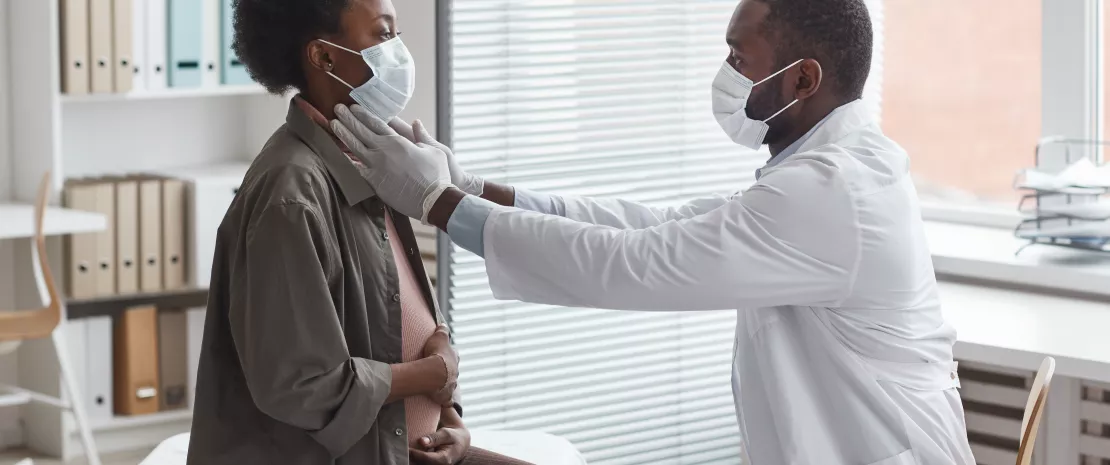Pregnancy: is vaginal dysbiosis responsible for complications in case of COVID-19?
Contracting COVID-19 during pregnancy increases the risk of complications, all the more so if the infection is severe. A study highlights the role of vaginal dysbiosis in this relationship.
Lay public section
Find here your dedicated section
Sources
This article is based on scientific information

About this article
35% Only 1 in 3 said their doctor had ever taught them what the vaginal microbiota was and what it was used for
Faced with COVID-19, pregnant women present an increased risk of developing a severe form and pregnancy complications, such as preeclampsia or premature birth. Well, the role played by a balanced vaginal microbiota in the optimal progression of pregnancy is known. And what if the harmful effects of COVID-19 in pregnant women required the intervention of the vaginal microbiota?
In order to check this hypothesis, researchers conducted a prospective case-control study including 28 non-infected pregnant women and 19 pregnant women suffering from COVID-19 (13 mild or even asymptomatic cases and 6 moderate to severe cases, including 2 that required the taking of antibiotics and antivirals).
More diversity and fewer lactobacilli among the COVID-19 pregnancies
A sample of the vaginal microbiota was obtained with a swab during the active phase of the disease in the month following recovery and evaluated by 16S rRNA gene sequencing. The COVID-19 group displayed significantly greater diversity than the control group. In addition, the Bacteroidetes had gained the upper hand over the Firmicutes, and, at bacterial genus level, the Lactobacillus sp. were significantly less abundant than in the control group. Well, previous studies showed that there was an increased risk of miscarriage or premature birth in pregnant women whose vaginal microbiota were depleted in Lactobacilli. These data corroborate this finding, since 3 women in the COVID-19 group gave birth prematurely (versus 0 in the control group).
Is the severity of COVID-19 related to vaginal dysbiosis?
Despite the small size of the sample, the investigators observed other differences in the composition of the vaginal microbiota in the COVID-19 group. In particular, the women suffering from moderate to severe forms of COVID-19 displayed much higher levels of Ureaplasma spp.: 2.05% vs 0.1% in case of asymptomatic to mild forms. The genus Ureaplasma is involved in different gynecological infections (salpingitis, urethritis, and cervicitis), its over-representation in case of severe COVID-19 also argues in favor of an association of vaginal dysbiosis both with SARS-Cov-2 infection and risks of pregnancy complications. All the more as, in the 3 premature births that occurred in this study, 2 were in the moderate to severe COVID-19 subgroup (n=6).
Thus, although this study does not allow the conclusion that a causal relationship exists, these results suggest that COVID-19 may trigger an unfavorable disruption of the vaginal microenvironment in pregnant women. This would be even more pronounced when the infection is severe, and could lead to an increased risk of complications, such as premature birth.










